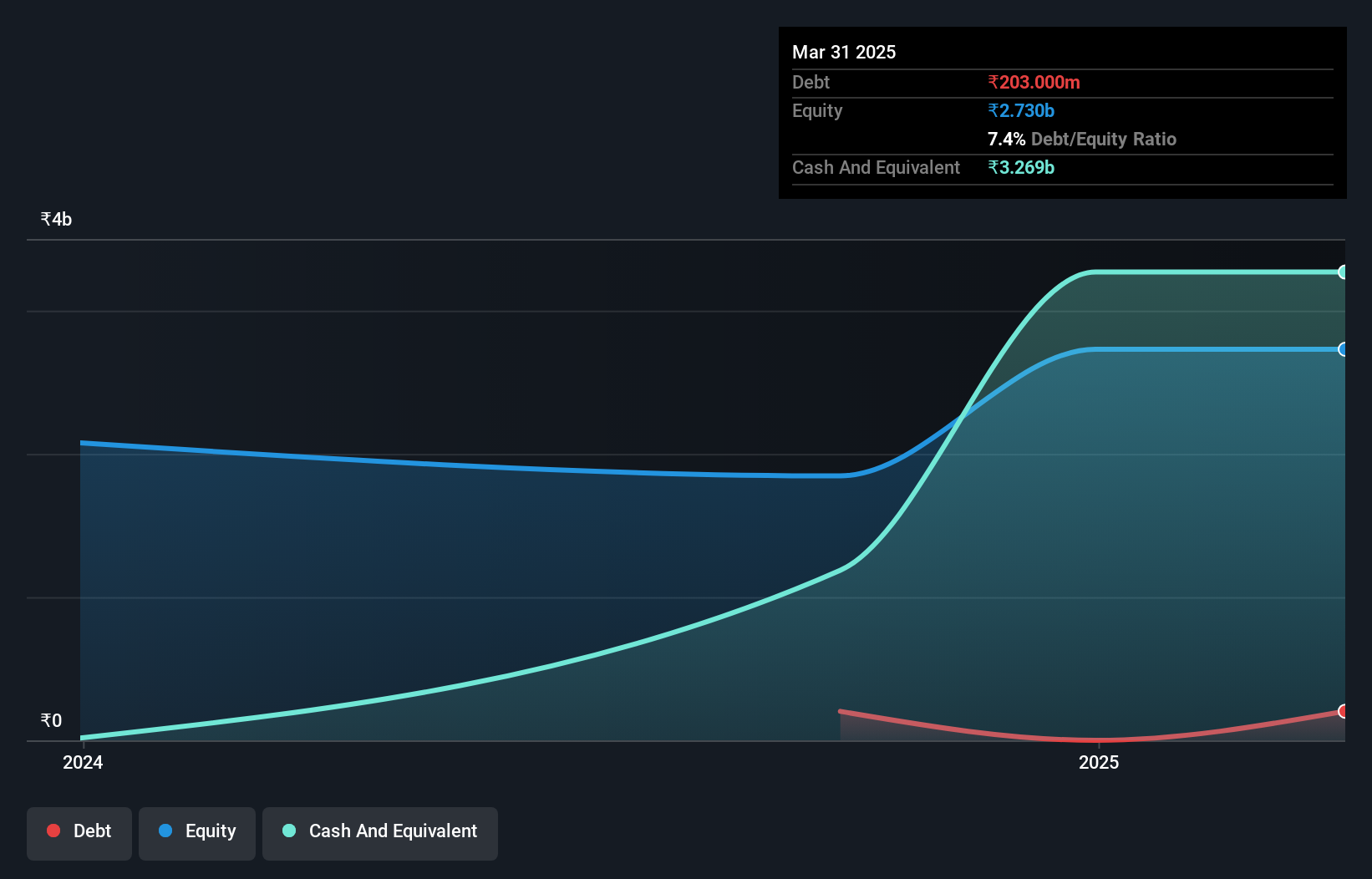Sanofi Consumer Healthcare India (NSE:SANOFICONR) Seems To Use Debt Rather Sparingly

Legendary fund manager Li Lu (who Charlie Munger backed) once said, 'The biggest investment risk is not the volatility of prices, but whether you will suffer a permanent loss of capital.' It's only natural to consider a company's balance sheet when you examine how risky it is, since debt is often involved when a business collapses. As with many other companies Sanofi Consumer Healthcare India Limited (NSE:SANOFICONR) makes use of debt. But is this debt a concern to shareholders?
When Is Debt A Problem?
Debt assists a business until the business has trouble paying it off, either with new capital or with free cash flow. Ultimately, if the company can't fulfill its legal obligations to repay debt, shareholders could walk away with nothing. While that is not too common, we often do see indebted companies permanently diluting shareholders because lenders force them to raise capital at a distressed price. Of course, the upside of debt is that it often represents cheap capital, especially when it replaces dilution in a company with the ability to reinvest at high rates of return. The first step when considering a company's debt levels is to consider its cash and debt together.
What Is Sanofi Consumer Healthcare India's Net Debt?
You can click the graphic below for the historical numbers, but it shows that as of December 2024 Sanofi Consumer Healthcare India had ₹203.0m of debt, an increase on none, over one year. But on the other hand it also has ₹3.27b in cash, leading to a ₹3.07b net cash position.

A Look At Sanofi Consumer Healthcare India's Liabilities
According to the last reported balance sheet, Sanofi Consumer Healthcare India had liabilities of ₹1.31b due within 12 months, and liabilities of ₹277.0m due beyond 12 months. On the other hand, it had cash of ₹3.27b and ₹181.0m worth of receivables due within a year. So it can boast ₹1.87b more liquid assets than total liabilities.
This state of affairs indicates that Sanofi Consumer Healthcare India's balance sheet looks quite solid, as its total liabilities are just about equal to its liquid assets. So it's very unlikely that the ₹131.2b company is short on cash, but still worth keeping an eye on the balance sheet. Simply put, the fact that Sanofi Consumer Healthcare India has more cash than debt is arguably a good indication that it can manage its debt safely.
See our latest analysis for Sanofi Consumer Healthcare India
Sanofi Consumer Healthcare India's EBIT was pretty flat over the last year, but that shouldn't be an issue given the it doesn't have a lot of debt. The balance sheet is clearly the area to focus on when you are analysing debt. But ultimately the future profitability of the business will decide if Sanofi Consumer Healthcare India can strengthen its balance sheet over time. So if you're focused on the future you can check out this free report showing analyst profit forecasts.
Finally, while the tax-man may adore accounting profits, lenders only accept cold hard cash. Sanofi Consumer Healthcare India may have net cash on the balance sheet, but it is still interesting to look at how well the business converts its earnings before interest and tax (EBIT) to free cash flow, because that will influence both its need for, and its capacity to manage debt. Over the last two years, Sanofi Consumer Healthcare India actually produced more free cash flow than EBIT. That sort of strong cash conversion gets us as excited as the crowd when the beat drops at a Daft Punk concert.
Summing Up
While we empathize with investors who find debt concerning, you should keep in mind that Sanofi Consumer Healthcare India has net cash of ₹3.07b, as well as more liquid assets than liabilities. And it impressed us with free cash flow of ₹4.3b, being 108% of its EBIT. So we don't think Sanofi Consumer Healthcare India's use of debt is risky. There's no doubt that we learn most about debt from the balance sheet. But ultimately, every company can contain risks that exist outside of the balance sheet. To that end, you should be aware of the 1 warning sign we've spotted with Sanofi Consumer Healthcare India .
If, after all that, you're more interested in a fast growing company with a rock-solid balance sheet, then check out our list of net cash growth stocks without delay.
New: Manage All Your Stock Portfolios in One Place
We've created the ultimate portfolio companion for stock investors, and it's free.
• Connect an unlimited number of Portfolios and see your total in one currency
• Be alerted to new Warning Signs or Risks via email or mobile
• Track the Fair Value of your stocks
Have feedback on this article? Concerned about the content? Get in touch with us directly. Alternatively, email editorial-team (at) simplywallst.com.
This article by Simply Wall St is general in nature. We provide commentary based on historical data and analyst forecasts only using an unbiased methodology and our articles are not intended to be financial advice. It does not constitute a recommendation to buy or sell any stock, and does not take account of your objectives, or your financial situation. We aim to bring you long-term focused analysis driven by fundamental data. Note that our analysis may not factor in the latest price-sensitive company announcements or qualitative material. Simply Wall St has no position in any stocks mentioned.
About NSEI:SANOFICONR
Sanofi Consumer Healthcare India
Operates as a fast-moving consumer healthcare company in India.
Excellent balance sheet with reasonable growth potential.
Market Insights
Community Narratives



